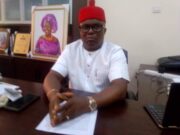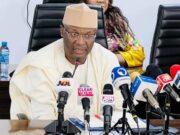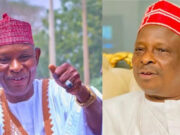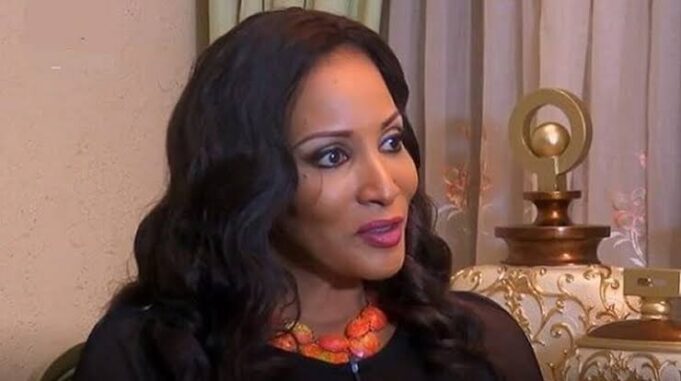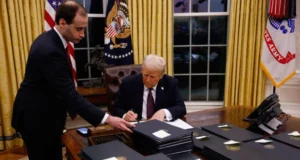Nigeria on Monday requested South Africa’s backing for its bid to secure full membership in the G20, BRICS, and the BRICS New Development Bank.
The country also seeks support from South Africa for leadership roles in key thematic discussions during South Africa’s G20 presidency.
The request was made by Nigeria’s Minister of State for Foreign Affairs, Bianca Odumegwu-Ojukwu, during her closing remarks at the ministerial session of the 11th Nigeria-South Africa Bi-National Commission (BNC) in Cape Town, South Africa. South Africa officially assumed the presidency of the G20 on December 1.
During her address, Odumegwu-Ojukwu reaffirmed Nigeria’s commitment to regional peace, specifically urging South Africa to assist in accelerating the peace process in Sudan.
She noted that President Bola Tinubu, a member of the African Union’s ad-hoc mediation committee, has prioritized resolving the crisis to promote peace and stability in the region.
“We are strongly committed to seeking a resolution to the crisis in Sudan, and we seek South Africa’s support to accelerate the peace process, ensuring that regional conflicts are de-escalated,” she said.
“With peace, we can achieve greater progress and development in all sectors.”
The Minister praised both countries’ officials for their efforts in preparing the draft communiqué and facilitating amendments during the ministerial session, which will be presented to Presidents Bola Tinubu and Cyril Ramaphosa during the presidential session on Tuesday.
In response, South Africa’s Minister of International Relations and Cooperation, Dr. Roland Lamola, affirmed South Africa’s commitment to amplifying Africa’s voice during its G20 presidency and acknowledged Nigeria’s requests.
He emphasized the shared resolve to strengthen bilateral ties between Nigeria and South Africa, focusing on improving the quality of life for their citizens.
Lamola, who co-chaired the session, highlighted several priority areas for collaboration, including trade, investment, tourism, health, education, agriculture, ICT, artificial intelligence, arts and culture, climate change, defense, and security.
He also stressed the importance of expediting the finalization and implementation of agreements under the BNC framework.
In her opening remarks, Odumegwu-Ojukwu emphasized Nigeria’s intention to deepen its strategic partnership with South Africa, particularly in infrastructure development and capacity building in the mining sector.
She announced that Nigeria would present a draft Memorandum of Understanding (MoU) to facilitate collaboration with South Africa on certifying Nigerian mining professionals.
The ministerial session laid the groundwork for high-level engagement between Presidents Tinubu and Ramaphosa, where key agreements will be signed, aimed at strengthening the strategic partnership between the two countries.
Odumegwu-Ojukwu underscored the importance of the Nigeria-South Africa relationship, describing it as central to the future development of both nations and the broader African continent.
“The Bi-National Commission holds great promise for the future of our relations, and we have much more to achieve together,” she said.
The meeting was attended by Nigerian ministers from various sectors, including Defence, Women Affairs, Industry, Trade and Investment, Agriculture, and Communications, as well as senior officials from the Nigeria Immigration Service and Nigeria Customs Service.
They were joined by their South African counterparts.
This year marks the 25th anniversary of the BNC, which has played a crucial role in strengthening ties between Africa’s two largest economies.
Lamola highlighted the long-standing diplomatic relations between Nigeria and South Africa, particularly Nigeria’s support for the anti-apartheid movement.
He also called for expanding trade relations within the framework of the African Continental Free Trade Area to reflect the potential for further growth.
Lamola also expressed concerns over regional conflicts and the need for reform of international institutions like the United Nations, stressing the responsibility of both nations to promote global peace and dialogue.
On South Africa’s upcoming G20 presidency in 2025, Lamola noted that it would serve as a platform to project African developmental priorities.
In an update to reporters, the Comptroller-General of Nigeria Immigration Service, Kemi Nandap, revealed that the two countries had exchanged an MoU on Consular and Migration Matters, which is expected to be finalized by June 2025.
This MoU aims to enhance cooperation on migration, visa processes, and the dignified handling of nationals facing deportation from both countries.



